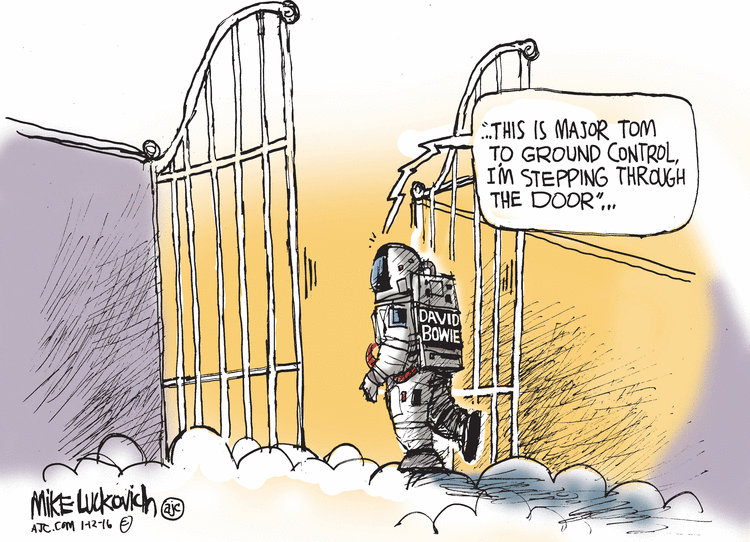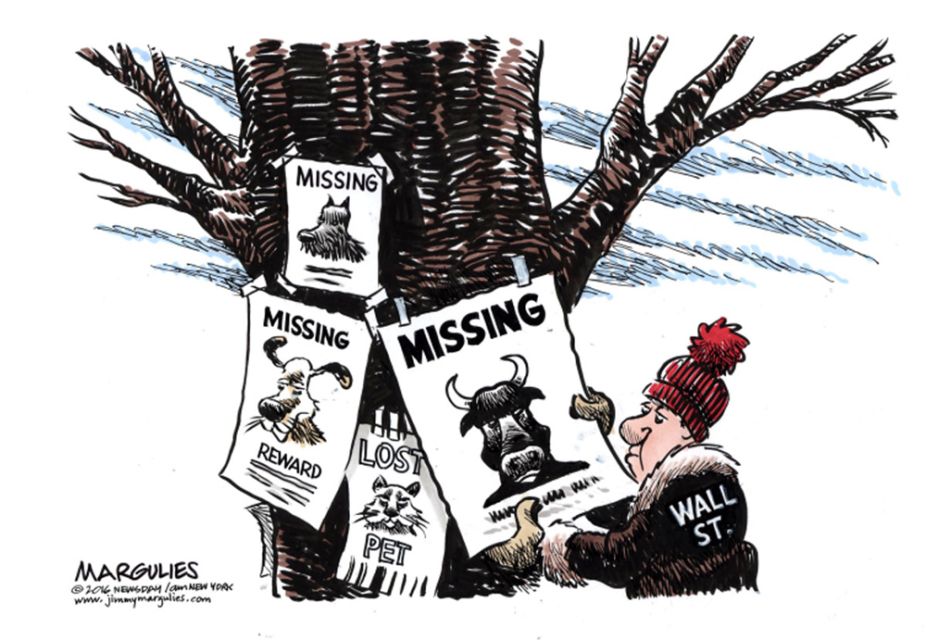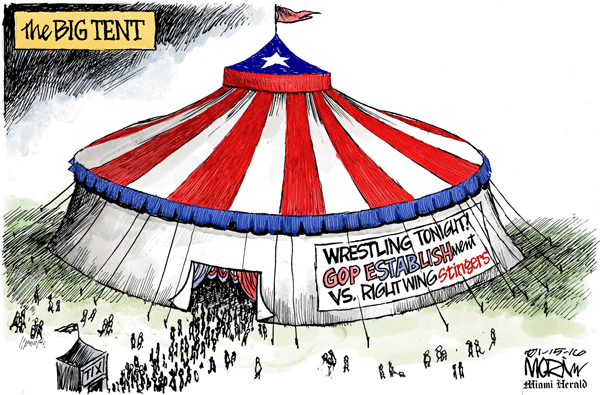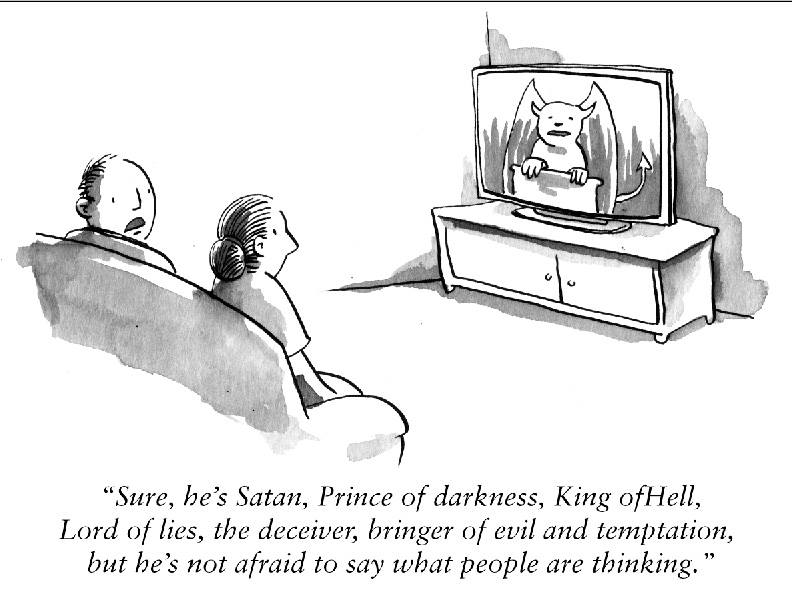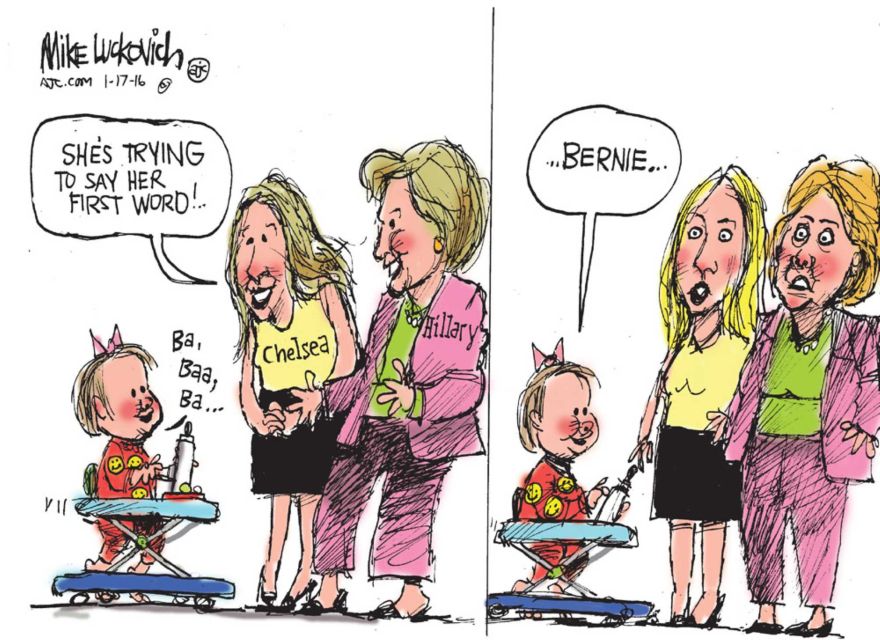As we continue our deep dive into American demographics and its impact on politics, today, let’s consider the role of evangelical Christians in our primaries. In Iowa, evangelical and born-again Christians account for 60% of those who attend Republican caucuses. Last fall, The Economist published a chart showing the percentage of evangelicals by state, and each state’s power at the Republican Party convention:
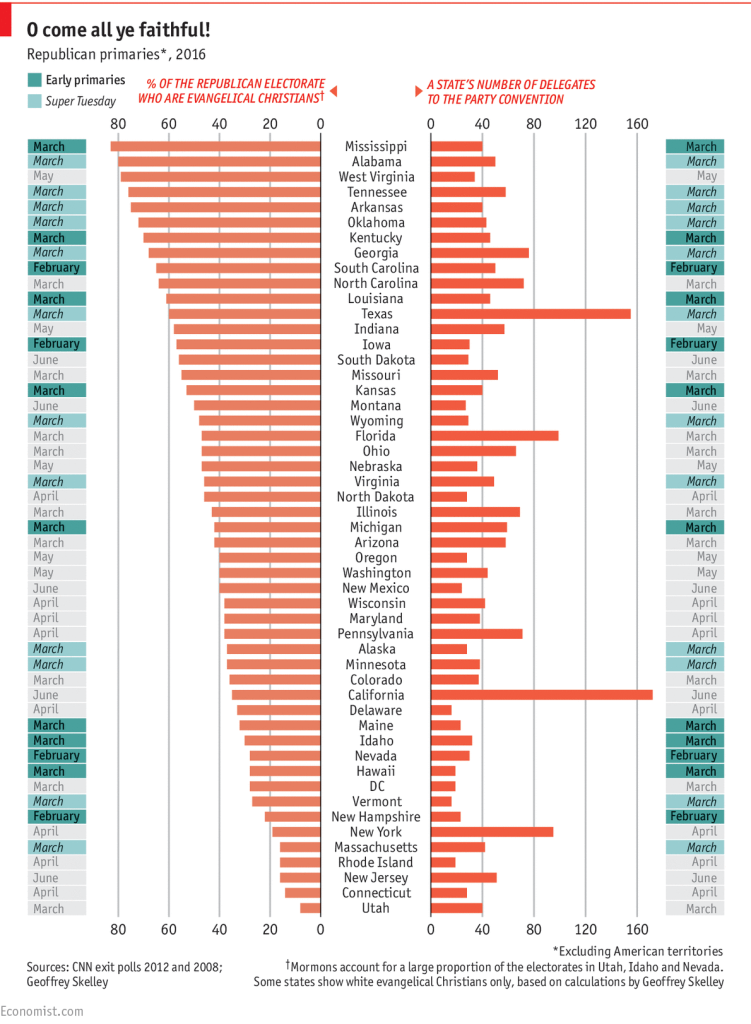
The Republican candidates are trying hard to court evangelicals. Nationally, Ted Cruz has a 64% favorable rating among evangelicals, according to Public Policy Polling (PPP), behind Ben Carson, who has a 69% rating. Marco Rubio and The Donald are at 54%.
Blog readers may remember our review of “One Nation Under God” by Kevin Kruse. In that book, Kruse shows how Rev. Billy Graham influenced our politics for 50 years. He believed that our way of life and our economic system were ordained not just by God, but by the Christian God.
Billy Graham said during the 1952 presidential campaign:
The Christian people of America will not sit idly by…They are going to vote as a bloc for the man with the strongest moral and spiritual platform, regardless of his views on other matters.
Well, Billy’s son, Franklin Graham, has a group called Decision America that is conducting a 50-state tour to energize Christians to vote. From his website:
I’m going to every state in our country to challenge Christians to live out their faith at home, in public and at the ballot box…
Franklin Graham has been involved in politics before. He supported Romney. He has backed ballot initiatives opposing gay marriage; he led prayers at the first inauguration of President George W. Bush.
Like many evangelicals, he sees a pattern of bullying by secular forces and their allies in government. He worries about Christian employers having to fund health insurance that covers birth-control, and wonders if religious colleges will one day have to admit gay students (like they don’t already!).
As Kevin Kruse shows, the history of American Christianity is full of prayer meetings in which the faithful bewail a nation adrift, and vow—like the tribes of Israel before them—to stand fast in the face of tyrannical rulers. At his kick-off meeting in Des Moines, IA, Franklin noted that:
…an estimated 20 to 30 million Christians stayed home in the 2012 election.
He wondered what our country would look like if city councils, school boards and mayor seats were filled by believers in the next two or three elections. And he urged Christians to not only vote in next year’s elections but to run for office at every level of public office. Franklin Graham will not be supporting any specific candidates or parties. He says that he left the Republican Party in late 2015 in favor of an independent status.
Gee, political enlightenment came just a few months ago.
But today, most American politicians are already believers. HuffPo says that 92% of 114th Congress are Christian. Compare that to the 73% of American adults who are Christian, according to Pew Forum. A full 99% of Republicans in Congress are Christian, compared to (only) 81% of the Democrats.
And Graham’s not being a member of a political party is a fiction. His agenda is supported by just one party, the one that his 97 year-old father affiliated with back in 1952. The party that already has 99% of its Congress people affiliated with the Christian religions. And it takes a fair amount of cognitive dissonance for a religious group that already has a supermajority of Congress and takes an absolutely important part in our politics to claim persecution at the hands of the government.
Franklin Graham may be a bit more subtle in 2016 than he was in 2012, but you have to wonder if his ultimate goal is to impose his own version of Christianity on the entire nation.
The Old Time Religion of both Billy and Franklin Graham has a deep, visceral attachment to the Republican Party from the marriage of capitalism to Christianity in the 1930’s that promoted religious hostility to the New Deal, to convincing Eisenhower to add “In God We Trust” to our currency, and “Under God” to our pledge of allegiance.
That Old Time Religion is still at work for the GOP, even if Franklin Graham says he is non-partisan.



